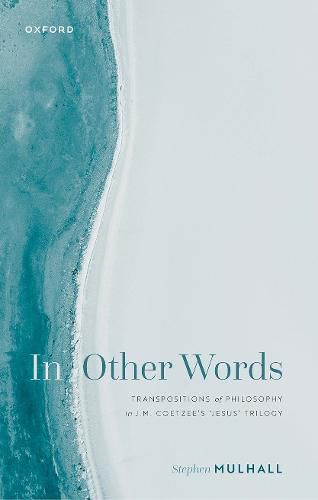Readings Newsletter
Become a Readings Member to make your shopping experience even easier.
Sign in or sign up for free!
You’re not far away from qualifying for FREE standard shipping within Australia
You’ve qualified for FREE standard shipping within Australia
The cart is loading…






J. M. Coetzee’s ‘Jesus’ Trilogy extends and intensifies his long-term interest in engaging with a wide range of texts, themes and assumptions that help constitute the history of Western European philosophy. In this commentary, Stephen Mulhall extends his own earlier work on Coetzee’s previous stagings of the ancient quarrel between philosophy and literature by identifying and following out various ways in which the ‘Jesus’ Trilogy activates and interrogates themes drawn from Wittgenstein’s later philosophy. These themes include rival conceptions of counting and reading, the relation between concepts and wider forms of life, and the intertwined fate of philosophy, literature and religion in a resolutely secular world. In these ways, Wittgenstein’s, and so Coetzee’s, visions of the world disclose their uncanny intimacy with issues and values central to the critique of modernity elaborated in the work of Nietzsche, Heidegger, and Sartre.
$9.00 standard shipping within Australia
FREE standard shipping within Australia for orders over $100.00
Express & International shipping calculated at checkout
J. M. Coetzee’s ‘Jesus’ Trilogy extends and intensifies his long-term interest in engaging with a wide range of texts, themes and assumptions that help constitute the history of Western European philosophy. In this commentary, Stephen Mulhall extends his own earlier work on Coetzee’s previous stagings of the ancient quarrel between philosophy and literature by identifying and following out various ways in which the ‘Jesus’ Trilogy activates and interrogates themes drawn from Wittgenstein’s later philosophy. These themes include rival conceptions of counting and reading, the relation between concepts and wider forms of life, and the intertwined fate of philosophy, literature and religion in a resolutely secular world. In these ways, Wittgenstein’s, and so Coetzee’s, visions of the world disclose their uncanny intimacy with issues and values central to the critique of modernity elaborated in the work of Nietzsche, Heidegger, and Sartre.